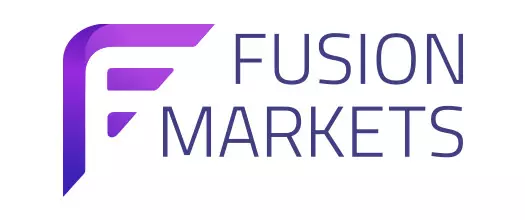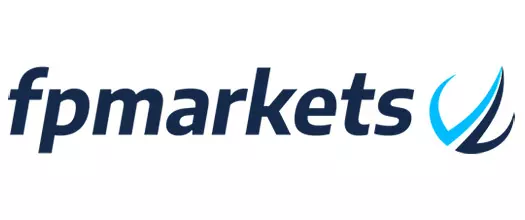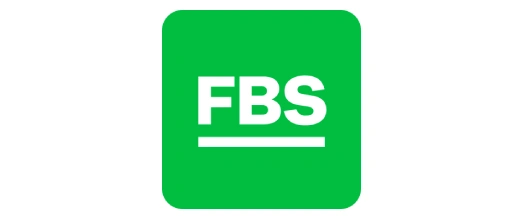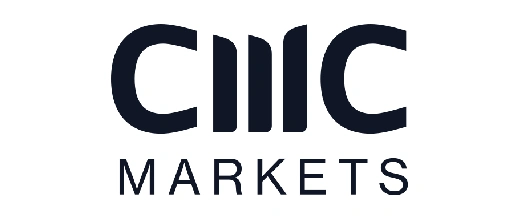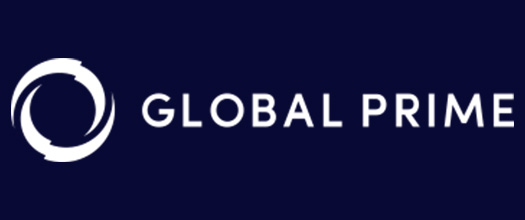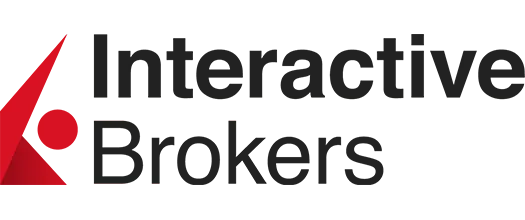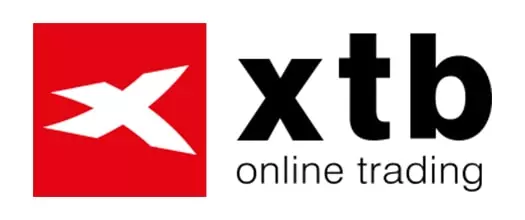Our team of expert traders has tested several regulated and trustworthy Canadian trading platforms and compiled a top list of the best among them. Each trading platform operating in Canada received a quality score based on several factors, including its Trustpilot rating, regulation, fees and commissions, available trading platforms, customer service, and more.
The trading industry in Canada is developing at a rapid pace, and the number of traders seeking to join the various markets is constantly on the rise. Unlike the USA, where trading CFDs is prohibited, Canada permits them, and the fact that such activities are overseen at both federal and provincial levels creates a safe environment. Naturally, this might bring some challenges as well.
While trading activities are subject to strict controls and regulations in Canada, creating safe conditions, traders might face constraints because of the limits set on margin requirements for various financial products. Consequently, they are restricted in the amount they are allowed to borrow from their broker of choice to trade CFDs.
Considering how tightly regulated the market is, it is not surprising that many traders wonder whether there are low-spread brokers that still offer a premium user experience. To help with the search, we have created a list of ten of the best Canadian brokers. This article not only reviews the best brokers in the country but also sheds more light on regulations, the payment methods available to traders, and the trading platforms from which they can usually choose.
| Regulator | Investment Industry Regulatory Organization of Canada (IIROC) |
| Maximum Leverage of Forex | 1:50 |
| Maximum Leverage of Stocks | 1:30 |
| Maximum Leverage of CFDs | 1:30 |
The best Canadian brokers
With a population of more than 38 million, trading is a thriving activity in Canada. Yet the number of brokers that cater to this market is not as extensive, especially when compared with countries such as Australia and the UK. This is mainly due to the fragmented authority between the provinces and overly complicated guidelines. Before choosing a broker, traders should ensure it is authorised locally by a regional regulator and the IIROC.
 TRADE NOWREAD REVIEWPlatformscTrader, DupliTrade, Fusion+ Copy Trading, MetaFX, MetaTrader 4, MetaTrader 5, TradingViewMin Deposit$0FeesNo deposit and withdrawal feesDeposit MethodsCommissions$2.25 per lot commissionSpreadEUR/USD: AVG 0.93 pips, GBP/USD: AVG 1 pips, USDJPY: AVG 1.7 pipsWithdrawal MethodsLeverage EU1:30Leverage non-EU1:500 (ASIC | Pro Account), 1:30 (ASIC | Retail Account), 1:500 (VFSC | Retail Account)InstrumentsCommodity CFDs, Crypto CFDs, Forex CFDs, Index CFDs, Metal CFDs, Stock CFDs*All financial products involve risk and you should ensure you understand the risk involved as certain financial products may not be suitable for everyone. Trading in margin foreign exchange and derivatives carries a high level of risk and you may incur a loss that is far greater than the amount you invested. Past performance of any product described on this website is not a reliable indication of future performance. Any information or advice contained on this website is general in nature and has been prepared without taking into account your objectives, financial situation or needs. Before acting on any information or advice on this website, you should consider the appropriateness of it (And any relevant product) having regard to your circumstances and we recommend that you seek independent financial advice if necessary.
TRADE NOWREAD REVIEWPlatformscTrader, DupliTrade, Fusion+ Copy Trading, MetaFX, MetaTrader 4, MetaTrader 5, TradingViewMin Deposit$0FeesNo deposit and withdrawal feesDeposit MethodsCommissions$2.25 per lot commissionSpreadEUR/USD: AVG 0.93 pips, GBP/USD: AVG 1 pips, USDJPY: AVG 1.7 pipsWithdrawal MethodsLeverage EU1:30Leverage non-EU1:500 (ASIC | Pro Account), 1:30 (ASIC | Retail Account), 1:500 (VFSC | Retail Account)InstrumentsCommodity CFDs, Crypto CFDs, Forex CFDs, Index CFDs, Metal CFDs, Stock CFDs*All financial products involve risk and you should ensure you understand the risk involved as certain financial products may not be suitable for everyone. Trading in margin foreign exchange and derivatives carries a high level of risk and you may incur a loss that is far greater than the amount you invested. Past performance of any product described on this website is not a reliable indication of future performance. Any information or advice contained on this website is general in nature and has been prepared without taking into account your objectives, financial situation or needs. Before acting on any information or advice on this website, you should consider the appropriateness of it (And any relevant product) having regard to your circumstances and we recommend that you seek independent financial advice if necessary.Online brokers come in various forms, and Fusion Markets is one of the most recognizable platforms catering to the Canadian market. Founded in 2019, the brokerage now allows traders to choose from multiple instruments, including share CFDs, precious metals, Forex, commodities, energy, and equity indices. Not only do users have the opportunity to trade more than 250 products, but they can also do so with ultra-low fees.
Because Fusion Markets was founded by industry veterans, it makes sense that great emphasis is placed on the technology it uses, customer care, and competitive pricing. To ensure that all customers find what they are looking for, the broker offers a choice between Zero and Classic account types. If traders are unsure whether this is the right trading platform for them, they can first open a demo account.
Fusion Markets’ website is exceptionally easy to navigate, whether traders are beginners or long-term investors. They can choose among several platforms, including MetaTrader 4 and MetaTrader 5, on both mobile and desktop devices.
The broker aims to give its users as much of an edge in the markets as possible and, to this end, provides several tools. The range of tools includes Technical Insight, Analyst Views, and Market Buzz.
- 2. AdmiralsMin Deposit$1 or $10Fees
- 10 CAD per month inactivity fee
- Currency conversion fee
Deposit MethodsCommissionsNoSpread0 or 0.5 pipsWithdrawal MethodsLeverage EU- 1:30 for retail clients
- 1:500 for pro clients
Leverage non-EU1:500InstrumentsForex, stocks, bonds, indices, and commodities* Investments involve risks and are not suitable for all investors. CFDs are complex instruments and come with a high risk of losing money rapidly due to leverage. 76% of retail investor accounts lose money when trading CFDs with this provider. You should consider whether you understand how CFDs work and whether you can afford to take the high risk of losing your money.Admirals is a broker with more than 20 years of industry experience that promises traders lower trading costs through tighter spreads. The financial products the broker provides are tailored to work just as well for smaller accounts, which means that traders of all experience levels are sure to find what they are looking for. With thousands of instruments to trade, professional trading tools, and competitive prices, this broker promises to meet the requirements of even the choosiest Canadian traders.
Admirals relies on cutting-edge technology to ensure that its users enjoy a seamless trading experience. Traders who register for an account gain access to more than 270 markets, including bonds, stocks, indices, forex, and commodities. Complete novices can trade like experts with the innovative and powerful StereoTrader tool and expand their knowledge through the materials in the Education section.
Support and security are vitally important, and Canadian traders can rest assured that the broker complies with all standards, as Admirals is authorized by several regulatory bodies, including the IIROC. While using the platform, traders can have full confidence that their funds are safe, as all client assets are kept separate from the broker’s operating funds.
Admirals users can create a demo account and receive CAD 100,000 in virtual funds to get a feel for the platform. If they already feel confident, they can proceed with registration and choose the account type that suits them best.
 TRADE NOWREAD REVIEWRegulatorsCySEC (Cyprus, # 371/18), FSAS (Seychelles, # SD130), FSCA (South Africa, # 50926), SCB (Bahamas), ASIC (Australia, # 286354), FSCM (Mauritius, # GB21026264)PlatformscTrader, IRESS, MetaTrader 4, MetaTrader 5, TradingView3. FP MarketsMin Deposit$50 (AU$100)Fees
TRADE NOWREAD REVIEWRegulatorsCySEC (Cyprus, # 371/18), FSAS (Seychelles, # SD130), FSCA (South Africa, # 50926), SCB (Bahamas), ASIC (Australia, # 286354), FSCM (Mauritius, # GB21026264)PlatformscTrader, IRESS, MetaTrader 4, MetaTrader 5, TradingView3. FP MarketsMin Deposit$50 (AU$100)Fees- $60 monthly fee
- No deposit and withdrawal fees
Deposit MethodsCommissionsNo commission for ForexSpreadEUR/USD: AVG 1.2 pips, GBP/USD: AVG 1.4 pips, USDJPY: AVG 1.5 pipsWithdrawal MethodsLeverage EU1:500 (CySEC | Pro Account), 1:30 (CySEC | Retail Account)Leverage non-EU1:30 (ASIC | Retail Account), 1:500 (FSAS | Retail Account)InstrumentsCommodity CFDs, Crypto CFDs, Energy CFDs, Forex CFDs, Index CFDs, Metal CFDs, Stock CFDs*Derivative products are highly leveraged, carry a high level of risk and are not suitable for all investors. Features of our products including fees and charges are outlined in the relevant legal documents available on our website. The legal documents should be considered before entering into transactions with us.Operating since 2005, FP Markets is an award-winning trading platform that welcomes users from Canada. Offering consistently tight spreads starting from as low as 0.0 pips, this broker allows its clients to choose from powerful platforms such as Iress, MetaTrader 4, WebTrader, and MetaTrader 5.
Several factors set FP Markets apart from other trading platforms serving the Canadian market, and its lightning-fast, low-latency trade execution is worth noting. Additionally, the broker offers some of the tightest spreads in the industry, starting from 0.0 pips.
The variety of instruments available for trading is extensive – bonds, shares, indices, cryptocurrencies, forex, commodities, and metals are all on offer. Platform users can access more than 10,000 tradable CFD products on some of the world’s largest exchanges.
Traders can add or withdraw funds with ease, using multiple supported payment processors. Transactions are fee-free, and depending on the account type they choose, traders can deposit a minimum of $100 or $1,000. If traders have any questions, they can reach out immediately, as the customer support team operates around the clock.
Members of FP Markets can trade global markets anytime, anywhere, through a convenient app without having to create additional accounts.
 TRADE NOWREAD REVIEWRegulatorsCIRO (Canada), CySEC (Cyprus, # 347/17), FRSA (United Arab Emirates, # 190018), FFAJ (Japan, # 1574), FSCA (South Africa, # 45984), FSRA (Canada, # 190018), ISA (Israel, # 514666577), JFSA (Japan, # 1662), ASIC (Australia, # 406684), BVIFSC (Virgin Islands, British, # SIBA/L/13/1049), CBI (Ireland, # C53877)PlatformsAvaOptions, DupliTrade, AvaSocial, MetaTrader 4, MetaTrader 5, AvaTadeGO, Proprietary Web, ZuluTrade4. AvaTradeMin Deposit$100Fees$50 inactivity fee after three consecutive months with no useDeposit MethodsCommissionsNo commissionSpreadEUR/USD: AVG 0.8 pips, GBP/USD: AVG 1.2 pips, USDJPY: AVG 1.3 pipsWithdrawal MethodsLeverage EU1:30Leverage non-EU1:400 (Pro Account), 1:30 (Standard Account)InstrumentsBonds CFDs, Commodity CFDs, Crypto CFDs, Crypto Options, Energy CFDs, ETF CFDs, Forex CFDs, Forex Options, Index CFDs, Index Options, Metal CFDs, Share CFDs, Stock CFDs, Stock Options, US Stock Options*Trading CFDs and FX Options entail risk and could result in the loss of your capital.
TRADE NOWREAD REVIEWRegulatorsCIRO (Canada), CySEC (Cyprus, # 347/17), FRSA (United Arab Emirates, # 190018), FFAJ (Japan, # 1574), FSCA (South Africa, # 45984), FSRA (Canada, # 190018), ISA (Israel, # 514666577), JFSA (Japan, # 1662), ASIC (Australia, # 406684), BVIFSC (Virgin Islands, British, # SIBA/L/13/1049), CBI (Ireland, # C53877)PlatformsAvaOptions, DupliTrade, AvaSocial, MetaTrader 4, MetaTrader 5, AvaTadeGO, Proprietary Web, ZuluTrade4. AvaTradeMin Deposit$100Fees$50 inactivity fee after three consecutive months with no useDeposit MethodsCommissionsNo commissionSpreadEUR/USD: AVG 0.8 pips, GBP/USD: AVG 1.2 pips, USDJPY: AVG 1.3 pipsWithdrawal MethodsLeverage EU1:30Leverage non-EU1:400 (Pro Account), 1:30 (Standard Account)InstrumentsBonds CFDs, Commodity CFDs, Crypto CFDs, Crypto Options, Energy CFDs, ETF CFDs, Forex CFDs, Forex Options, Index CFDs, Index Options, Metal CFDs, Share CFDs, Stock CFDs, Stock Options, US Stock Options*Trading CFDs and FX Options entail risk and could result in the loss of your capital.Offering uncompromising security, personalized customer support, and advanced trading tools, AvaTrade is a one-stop destination for traders of all experience levels. The broker is best known for its customer-first approach and the fact that it has been pioneering the industry since 2006. Figures prove that AvaTrade is the first choice of many traders, with well over 40,000 active users who execute more than 3 million trades per month.
Being one of the very first Forex trading platforms, the broker now allows its users to venture into trading over 1,000 instruments, including cryptocurrencies, bonds, commodities, stocks, and options. While using the brokerage, traders will benefit from instant execution, tight spreads, and no commissions. Additionally, thanks to ongoing educational resources, traders can improve their skills and learn new concepts.
Along with automated trading, AvaTrade gives its users a choice of several other trading platforms, including MetaTrader 4, MetaTrader 5, and WebTrader. The award-winning AvaTradeGo and proprietary AvaOptions are professional and powerful platforms that allow traders to connect with global markets with ease.
AvaTrade is a platform that always seeks to expand its reach, and today it is regulated in Europe, Japan, Australia, South Africa, the British Virgin Islands, and the UAE.
- 5. FBSMin DepositCent accounts: $10; AU$50 (ASIC accounts)FeesNo deposit and withdrawal feesDeposit MethodsCommissions
- No commission for Pro, Micro, Zero, Standard, and Cent accounts
- $6/lot for ECN
- 0.05% for opening and 0.05% for closing positions for Crypto
SpreadEUR/USD: AVG 0.7 pips, GBP/USD: AVG 1.2 pips, USDJPY: AVG 1.3 pipsWithdrawal MethodsLeverage EU1:30 (CySEC)Leverage non-EU1:30 (ASIC), 1:3000 (FSC), 1:500 (Pro Account), 1:30 (Retail Account)InstrumentsEnergy CFDs, Forex CFDs, Index CFDs, Metal CFDs, Share CFDs*Risk warning: Before you start trading, you should completely understand the risks involved with the currency market and trading on margin, and you should be aware of your level of experience.Offering an enhanced user experience since 2009, FBS is an award-winning broker that caters to the Canadian market. The broker provides its services to traders from more than 150 countries and operates under stamps of approval from a number of regulatory authorities.
The number of traders choosing FBS as their broker of choice is continually on the rise, and it is easy to see why – they can pick from a wide array of account types, including Standard, Cent, Pro, ECN, Crypto, Zero Spread, and Micro. Traders who choose to get on board can use MetaTrader 4 or MetaTrader 5, which are accessible on both mobile and desktop devices.
What makes this broker truly stand out from the competition is that the company provides leverage of up to 1:3000, provided that traders opt for Standard, Zero Spread, or Micro accounts. It is also worth noting that traders will be offered fixed, flexible, and zero spreads, depending on the preferred account type.
The broker seeks to provide trading services to people of all skill and experience levels and, because of this, gives them access to a wide variety of instruments, including metals, indices, energies, stocks, Forex, cryptocurrencies, and exotic Forex pairs. The recently added FBS Trader app puts all top assets in one place.
The minimum deposit is just $1, and traders can use payment processors such as Neteller, Skrill, Visa, Perfect Money, and STICPAY.
With FBS, traders can have full confidence that they will receive the highest levels of security, an adequate variety of options, and top-performing trading platforms to choose from. The broker has also made sure that there will always be someone to assist traders with their queries, as FBS’s help desk operates around the clock.
- 6. CMC MarketsMin Deposit$0FeesNo deposit and withdrawal fees, except for wire transferDeposit MethodsCommissions1 Cent per Share CFDSpreadEUR/USD: MIN 0.5 pips, EUR/USD: AVG 0.6 pips, GBP/USD: MIN 0.9 pips, GBP/USD: AVG 1.1 pips, USDJPY: MIN 0.7 pips, USDJPY: AVG 1.3 pipsWithdrawal MethodsLeverage EU1:500 (FCA | Pro Account), 1:30 (BaFin | Retail Account), 1:30 (FCA | Retail Account)Leverage non-EU1:500 (ASIC | Pro Account), 1:30 (ASIC | Retail Account), 1:20 (MAS | Retail Account)InstrumentsCommodity CFDs, Crypto CFDs, Energy CFDs, ETF CFDs, Forex CFDs, Index CFDs, Metal CFDs, Share CFDs, Stock CFDs, US Stock CFDs*Spread bets and CFDs are complex instruments and come with a high risk of losing money rapidly due to leverage. 77% of retail investor accounts lose money when spread betting and/or trading CFDs with this provider. You should consider whether you understand how spread bets and CFDs work and whether you can afford to take the high risk of losing your money.
Offering a reliable, user-oriented trading environment built on advanced platforms, CMC Markets is an online brokerage that lets you access more than 10,000 CFD markets across shares, treasuries, commodities, ETFs, Forex, and indices.
The broker’s goal is to provide its clients with the ultimate trading experience, and, to that end, it gives them the opportunity to develop a diverse portfolio, thereby significantly increasing their potential trading opportunities. To ensure the best possible trading experience anytime and anywhere, the broker offers dedicated apps for iOS- and Android-powered devices.
The award-winning broker continually seeks ways to enhance its clients’ trading experience and allows them to execute trades through user-friendly proprietary platforms and native apps. The broker also boasts dynamic charting capabilities, enabling traders to use a variety of features to support their chart analysis, including pattern recognition, more than 80 technical indicators, drawing tools, and a chart-forum community.
Thanks to cutting-edge technology, traders have better control over how their orders are executed and can enter and exit positions in a flash.
With more than 27 years of industry experience, the broker understands that the security of client funds truly matters. While using the platform’s services, traders can be confident that their money is in good hands, as CMC Markets complies with the rules and regulations of IIROC and CIPF.
- 7. Global PrimeMin Deposit$0FeesNo deposit and withdrawal feesDeposit MethodsCommissionsNo commission for Standard accounts $3.5 for Raw accountsSpreadEUR/USD: AVG 1.04 pips, GBP/USD: AVG 1.3 pips, USDJPY: AVG 1.32 pipsWithdrawal MethodsLeverage EU1:30Leverage non-EU1:500 (ASIC | Pro Account), 1:30 (ASIC | Retail Account), 1:500 (VFSC)InstrumentsCommodity CFDs, Forex CFDs, Index CFDs, Metal CFDs*Trading derivatives carries a high level of risk to your capital and you should only trade with money you can afford to lose. Any Information or advice contained on this website is general in nature and has been prepared without taking into account your objectives, financial situation or needs. Past performance of any product described on this website is not a reliable indication of future performance.
Global Prime is one of the highest-rated Forex and CFD brokers and has been operating for 13 years. Whether you are new to trading or already a pro, Global Prime equips its clients with all the tools they need to gain an edge. To ensure that its services meet the needs of every trader, the broker allows users to open either Standard or Raw accounts. Beginners may prefer to set up a demo account first.
Although Forex is Global Prime’s specialty, the broker provides quick and hassle-free access to more than 150 global markets, including commodities, cryptocurrencies, indices, and bonds. It is not surprising that Global Prime is such a popular choice, as it offers 0.0-pip spreads, a $0 minimum account size, and $0 deposit fees. In addition, traders benefit from low latency, with execution speeds as fast as 10 seconds.
Global Prime combines market-leading trading conditions with some of the most popular platforms, such as MetaTrader 4. The broker continually strives for improvement, and MetaTrader 5 and cTrader will be available soon.
Global Prime offers its clients more than 20 instant, easy-to-use payment processors, ensuring that deposits and withdrawals are smooth sailing. CAD is among the supported currencies, meaning traders can save on conversion fees.
- Min Deposit$0Fees
- No deposit and withdrawal fees
- No fees when opening an account
Deposit MethodsCommissionsTraders can pick from a fixed rate pricing and tiered pricing structureSpreadEUR/USD: MIN 0.2 pips, EUR/USD: AVG 0.2 pips, GBP/USD: MIN 0.2 pips, GBP/USD: AVG 0.4 pips, USDJPY: MIN 0.2 pips, USDJPY: AVG 0.3 pipsWithdrawal MethodsLeverage EU1:30 (FCA | IBKR Lite)Leverage non-EU1:30 (ASIC | IBKR Lite), 1:30 (CBI | IBKR Lite), 1:25 (JFSA | IBKR Lite), 1:20 (MAS | IBKR Lite), 1:500 (Pro Account)InstrumentsBond Futures, Bonds CFDs, Commodity CFDs, Crypto CFDs, ETF CFDs, Forex CFDs, Index CFDs, Metal CFDs, Mutual Funds, Share CFDs, Stock Options*Investing in financial products involves taking risk. Your investments may increase or decrease in value, and losses may exceed the value of your original investment.Interactive Brokers is a multinational brokerage firm that has become increasingly popular in Canada. It is clearly a broker that traders can trust because it is regulated by IIROC. In 2023, the broker entered its 46th year in the industry, demonstrating that Interactive Brokers knows how to keep traders’ attention.
Traders who create an account with the broker gain access to options, stocks, currencies, futures, and bonds from a single unified account. Interactive Brokers is preferred by traders because of its industry-low commissions across 150 global markets. Additionally, traders will not face platform fees, account minimums, or added spreads.
The broker offers a range of award-winning trading platforms that are powerful enough to meet the needs of experts while working just as well for less-experienced traders.
The broker provides a lineup of flexible and convenient methods for funding your trading account and withdrawing your money. Traders can also top up their accounts and trade assets in more than 26 currencies, including CAD. They can improve their skills and knowledge whenever they wish, thanks to the broker’s on-demand educational resources.
- 9. AxiMin Deposit$1Fees
- No account maintenance fee
- No fees for payments
Deposit MethodsCommissions- No commission for Standard accounts
- $3.50 per lot for Pro accounts
SpreadStarts from 0.0 pipsWithdrawal MethodsLeverage EU1:30Leverage non-EU1:500InstrumentsForex, commodities, cryptocurrencies, shares, indices*Over-the-counter derivatives are leveraged products that carry a high level of risk to your capital. Trading is not suitable for everyone and may result in you losing substantially more than your initial investment. You do not own, or have any rights to, the underlying assets. You should only trade with money you can afford to lose.Offering its services to traders from over 100 countries around the globe, Axi is a broker that has been operating at full capacity since 2007. To ensure that all its clients are satisfied, the broker offers them a choice of more than 130 instruments to trade. It is trusted by more than 60,000 customers and provides its users with access to a number of markets, including shares, forex, indices, commodities, and cryptocurrencies.
Axi has carved out a reputation as an industry leader in online trading by providing its users with one of the world’s most popular trading platforms, MetaTrader 4. It is simple enough for total novices yet still offers advanced trading tools to meet the requirements of more experienced traders. The best part is that clients of the brokerage can trade on handheld and desktop devices, get real-time pricing and charts, and monitor and modify their trades with just a few clicks or taps.
Axi has a number of noteworthy features, and its customers benefit from lightning-fast execution, competitive pricing, flexible leverage, high liquidity, and tight spreads, to name just a few. To sharpen their skills and knowledge, users of the brokerage should make use of the educational materials that are available anytime and anywhere.
Considering that the broker caters to traders from so many countries, it is only natural that its customer support team speaks more than 15 languages.
 TRADE NOWREAD REVIEWRegulatorsCNMV (Spain, # 40), CySEC (Cyprus, # 169/12), DFSA (United Arab Emirates, # F006316), FCA (United Kingdom, # 522157), FSCA (South Africa, # 49970), FSAN (Norway, # FT00118162), IFSC (Belize, # 000302/11), KNF (Poland), BaFin (Germany)PlatformsxStation 510. XTBMin Deposit$250Fees
TRADE NOWREAD REVIEWRegulatorsCNMV (Spain, # 40), CySEC (Cyprus, # 169/12), DFSA (United Arab Emirates, # F006316), FCA (United Kingdom, # 522157), FSCA (South Africa, # 49970), FSAN (Norway, # FT00118162), IFSC (Belize, # 000302/11), KNF (Poland), BaFin (Germany)PlatformsxStation 510. XTBMin Deposit$250Fees- No fees for payments via bank transfer and debit cards
- €10 monthly (or equivalent in GBP, USD) inactivity fee
Deposit MethodsCommissionsNoSpreadEUR/USD: AVG 0.9 pips, GBP/USD: AVG 2.2 pips, USDJPY: AVG 1.4 pipsWithdrawal MethodsLeverage EU1:200 (CySEC | Pro Account), 1:30 (CySEC | Retail Account), 1:30 (FCA | Retail Account)Leverage non-EU1:500 (IFSC | Retail Account)InstrumentsCommodity CFDs, Crypto CFDs, Energy CFDs, ETF CFDs, Forex CFDs, Index CFDs, Metal CFDs, Share CFDs, Stock CFDs, US Stock CFDs*CFDs are complex instruments and come with a high risk of losing money rapidly due to leverage. 83% of retail investor accounts lose money when trading CFDs with this provider. You should consider whether you understand how CFDs work and whether you can afford to take the high risk of losing your moneyXTB is a global leader in FX and CFD trading, enabling its clients to trade on a world-class platform. The broker provides access to more than 2,100 financial markets, including commodities, shares, indices, forex, stocks, cryptocurrencies, and ETFs. All of these instruments are within reach, regardless of whether traders open a Standard or a Swap-Free account.
XTB is among the top-performing stock-exchange-listed Forex and CFD brokers in the world and is regulated by some of the largest supervisory authorities, which proves that traders can trust it. If they are not yet sure whether the broker meets all their requirements, traders can register for a demo account to get their feet wet.
The award-winning trading solutions the broker offers are designed to meet the needs of traders of all experience levels. The broker knows that success starts with the right platform, and because of this it offers xStation 5. This easy-to-use trading platform is fully customizable, delivers superior execution speeds, and provides sentiment analysis, performance statistics, and trader calculators.
The broker makes it exceptionally easy for traders to access the world’s largest financial markets, thanks to the new xStation mobile app. Clients can also use the Web Trade platform, which is compatible with most Internet browsers and gives traders access to more advanced tools.
Trading regulation in Canada
Trading is legal in the country but is tightly regulated, and brokers can accept residents of Canada as clients only after they apply for a licence from the Investment Industry Regulatory Organization of Canada (IIROC), a pan-Canadian self-regulatory organisation. It was established to supervise all investment dealers and trading activity occurring on the equity and debt markets within the country.
The IIROC was created in 2008 as a result of the consolidation of Market Regulation Services Inc, and the Investment Dealers Association of Canada (IDA). It should be noted that the Investment Industry Regulatory Organization of Canada is recognised by the Canadian Securities Administrators (CSA). The CSA includes all 13 provinces and the respective provincial regulatory bodies, including the British Columbia Securities Commission, Ontario Securities Commission, Alberta Securities Commission, and Financial and Consumer Services Commission, among others.
The securities regulators from all ten provinces and the three territories in Canada have united in the Canadian Securities Administrators (CSA). Its prime goal is to protect investors in the country from unfair, improper, or fraudulent practices. Fostering efficient and fair capital markets is also among the goals the CSA has set. It also handles initiatives regarding security violations in the respective territories.
The brokerages that welcome clients from Canada tend to provide their users with a wealth of trading instruments and, depending on the platform traders select, they might be allowed to trade commodities, stocks, indices, Forex, and cryptocurrencies, among others. In order for brokers to accommodate traders from Canada, they need to have a physical presence in the country.
To help ensure fair and transparent access to Canadian financial markets, the regulatory bodies in the country have set out different protections in various instruments that include ethical standards for investment professionals and requirements for disclosing investment information and pricing, among others.
An important thing traders need to know is that brokers regulated by the IIROC will also ask them to provide the name and contact information of a trusted contact person (TCP). Due to regulatory requirements, brokers will request these details so they can intervene in their investments should the circumstances require it.
Forex trading regulation in Canada
Forex trading is generally regulated as trading in either a security or a derivative, and the set of rules according to which it is conducted varies between provincial legislation. It is important to note that organisations and individuals seeking to offer Forex trading services in Canada need to be registered in the province where they intend to work. Additionally, they must be members of the Investment Industry Regulatory Organization of Canada.
An important point to note about brokers regulated by the IIROC is that they are required to approve all new accounts within one day of the client executing their initial trade. If brokers fail to comply with the rules set out by the IIROC, the organisation has the right to suspend their licences.
Due to the strict laws and rules set by the Alberta Securities Commission, its residents will only be allowed to trade CFDs and Forex once they qualify as accredited investors. Although there is no formal process to register as an accredited investor, traders need to know that they will be asked to provide documentation proving that they meet the financial asset and income requirements.
Under the regulations set out by the IIROC, an accredited investor is ‘an individual who, either alone or with a spouse, beneficially owns financial assets having an aggregate realisable value that before taxes, but net of any related liabilities, exceeds $1,000,000’; ‘an individual whose net income before taxes exceeded $200,000 in each of the two most recent calendar years or whose net income before taxes combined with that of a spouse exceeded $300,000 in each of the two most recent calendar years and who, in either case, reasonably expects to exceed the net income level in the current calendar year’; or ‘an individual who, either alone or with a spouse, has net assets of at least $5 million.’
As soon as they fill out the form, traders will be required to provide proof of their selected qualification option. While creating an account with a Canada-friendly brokerage, traders will also be required to provide a copy of an original bank, loan or mortgage, or credit card account statement. Completing the W-8 BEN form is also necessary.
Stocks trading regulation in Canada
Trading stocks is legal in Canada, and these operations fall under the purview of the IIROC and the Canadian Securities Administrators. Most Canada-facing brokers allow their users to trade stocks of some of the world’s largest companies anytime and anywhere. When compared with the rules and regulations regarding day trading in the US, the ones in Canada are considerably more lenient.
First and foremost, traders should make sure that they declare their income correctly. Although the income of day traders is considered business income and is taxable, traders should bear in mind that losses are tax-deductible.
The Superficial Loss Rule, or 30-day Loss Rule as it is also known, is yet another important rule to keep in mind. Under this rule, if a loss occurs 30 days before or 30 days after the date of the sale, it will be considered a superficial loss. Another point traders should bear in mind is that there is no minimum amount to start trading stocks unless they decide to start dealing in US stocks. If this is the case, a $25,000.00 minimum is required.
While trading stocks, Canadian traders can make use of multiple strategies, and the most common ones include scalping, trend following, technical analysis, and chart patterns.
CFDs trading regulation in Canada
Trading CFDs is legal in Canada, but as we explained already, it is subject to stringent regulation. The market regulations are set out by the IIROC, and all brokers that want to accommodate traders from the country need to abide by the requirements laid out by the self-regulatory organisation.
While various regulatory agencies administer and enforce securities legislation in Canada, and as a result traders benefit from one of the safest trading environments in the world, the limitations they face are also worth considering. Traders will encounter constraints regarding the maximum leverage they can benefit from, as the IIROC has placed limits on the margin requirements for various financial products.
Before they start offering their services to traders from Canada, brokers are required to evaluate the experience and knowledge levels of their prospective customers. It should also be mentioned that day traders and business traders are not treated in the same way by the Canada Revenue Agency (CRA) when it comes to taxation.
Canada Trading Regulation FAQ
1. Is it legal to trade Forex in Canada?
2. Are the regulations regarding trading the same in all provinces and territories in Canada?
3. What restrictions are placed on leverage in Canada?
4. How are CFDs taxed in Canada?
5. How much capital do I need to start trading in Canada?
Funding and withdrawing from a Canadian trading account
Brokerages that are friendly to traders from Canada seek to ensure that account opening is straightforward and that there is a wealth of instruments for their clients to choose from. The available platforms also matter to traders, but before they get started with their trading experience, they need to add funds to their accounts.
Free and lightning-fast deposits and cash-outs are also among the features traders value highly. The range of accepted deposit and withdrawal methods varies between the online brokerages, but typically traders will be presented with an extensive list of options, ensuring that the transfer of funds is equally smooth for traders of all experience levels.
As for the amounts traders will be allowed to deposit and withdraw, these will vary considerably between brokers. While looking for a Canada-friendly broker that meets all their requirements, traders might come across brokerages where there is no minimum deposit requirement. Whether extra fees will be charged also depends on the broker.
Depositing
For the most part, brokers that accept traders from Canada offer varied deposit options to ensure that their clients will be able to add funds to their accounts without facing difficulties. Debit and credit cards by Maestro, Mastercard, and Visa are some of the most frequently available deposit methods across brokers that welcome traders from the country.
Digital wallets have gained significant traction in recent years, which is understandable considering that payments executed through them take almost no time to clear. Skrill and Neteller are two of the e-wallets that are normally available on the deposit pages of brokers.
Canada-friendly providers of trading services often allow their clients to load their accounts with cash using cheques or wire transfers. If one of these options appeals to traders, they need to know that the processing times are considerably slower, especially when compared with the wait times for digital wallets. With wire transfers, traders’ payments might clear within up to 5 days. Opting for cheques means that traders need to wait even longer, as payments typically take up to 10 days to complete. Initiating EFTs is one more way to add funds to their trading accounts.
The good news is that most brokers that welcome traders from Canada allow their users to set up their accounts in CAD, meaning there will be no need to pay currency conversion fees. Traders should keep in mind that the deposit limits they are presented with might also be determined by the account type they have chosen to create.
| Payment Method | Usual Deposit Limits | Usual Deposit Timeframes | Usual Fees |
|---|---|---|---|
| Visa | Minimum deposit $0-$1,000 No maximum deposit | A couple of hours | Most brokers do not charge deposit fees |
| Mastercard | Minimum deposit $0-$1,000 No maximum deposit | A couple of hours | Most brokers do not charge deposit fees |
| Maestro | Minimum deposit $0-$1,000 No maximum deposit | A couple of hours | Most brokers do not charge deposit fees |
| Neteller | Minimum deposit $0-$1,000 No maximum deposit | A couple of hours | Most brokers do not charge deposit fees |
| Skrill | Minimum deposit $0-$1,000 No maximum deposit | A couple of hours | Most brokers do not charge deposit fees |
| Bank transfers | Minimum deposit $35-$250 No maximum deposit | Up to 3-5 days | The fee might be fixed or flexible |
| Interac Online | Minimum deposit $0-$250 No maximum deposit | A couple of hours | Most brokers do not charge deposit fees |
| Electronic Funds Transfer (EFT) | Minimum deposit $0-$250 No maximum deposit | Up to 3 days | Depends on the broker |
| Personal cheques | Minimum deposit $50-$250 No maximum deposit | 5 or more days | Depends on the broker |
Withdrawing
Withdrawals can be processed via a more limited range of payment processors, and in most cases payments from brokerages are executed through bank transfer. If bank transfer is the payment solution traders opt for, they should check whether extra fees are charged.
Where possible, cash-outs via digital wallets like Neteller and Skrill will take considerably less time, and once traders’ requests are approved, their funds might be accessible within a couple of hours or up to one day.
As for the cash-out limits Canadian traders need to observe, they should know that with some brokers there are no minimum or maximum withdrawal requirements. That being said, traders should contact customer support to find out the minimum withdrawal amount the broker recommends.
There are also Canada-friendly brokers that want to ensure withdrawals are easily manageable and allow their clients to cash out a minimum of $5 or $10. Naturally, there are also brokers that do not permit such small amounts, and the least withdrawable sums start at $100, $200, or even higher. Another thing to consider is that there might be limitations on the amount traders can withdraw when they have open trades.
| Payment Method | Usual Withdrawal Limits | Usual Withdrawal Timeframes | Usual Fees |
|---|---|---|---|
| Mastercard | Minimum withdrawal $5 No maximum withdrawal amount | Up to 5 days | Depends on the broker |
| Visa | Minimum withdrawal $5 No maximum withdrawal amount | Up to 5 days | Depends on the broker |
| Bank transfer | Minimum withdrawal amount $50 No maximum withdrawal amount | Up to 10 days | Depends on the broker |
| Neteller | Minimum withdrawal $5 No maximum withdrawal amount | Up to 1 day | Depends on the broker |
| Skrill | Minimum withdrawal $5 No maximum withdrawal amount | Up to 1 day | Depends on the broker |
| Interac Online | Minimum withdrawal $5 No maximum withdrawal amount | Up to 1 day | Depends on the broker |
Canada trading platforms
The platforms and tools traders will be given access to after they settle on one of the Canada-facing brokers will vary greatly. Before traders proceed with their trading experience, they should make sure that the preferred platform is combined with market-leading trading conditions.
Considering that handheld devices are an inseparable part of daily life, it makes sense that, for the most part, brokerages friendly to traders from the country ensure their services are easily accessible on iOS- and Android-powered devices. Typically, traders can download the native apps directly from the brokers’ websites.
MetaTrader 4
MetaTrader is regarded as the most popular trading platform globally and is often considered an industry benchmark, which is natural considering that it was introduced more than two decades ago.
The platform is customisable and feature-rich, which makes it suitable for seasoned traders, yet it is straightforward enough to meet the requirements of beginners. It boasts user-friendliness and flexibility, making it easy for traders to access information such as indicators, market news, charts, tools, and resources.
The electronic trading platform is also widely used because it offers news widgets and real-time alerts, ensuring that traders are always fully prepared to enter a trade. Another reason the platform is a great choice for traders from Canada is that it allows them to implement their automated trading strategies in their preferred markets.
Signals and Market are extra services that further increase the platform’s appeal, as the former make it possible to copy the trades of other traders, while the Market gives users access to technical indicators and expert advisors.
Another reason the platform is so well preferred is that it is exceptionally light and, as a result, works smoothly even on older devices. Traders who prefer to use their desktop devices can access the platform on Windows- and Mac-powered computers. Mobile users, on the other hand, can access the platform on devices powered by Android and iOS.
MetaTrader 5
This is the most up-to-date and robust version of MetaTrader, and it is favoured by Canadian traders because it offers greater efficiency, more features, and additional trading instruments. The platform provides everything seasoned traders might need to achieve the trading goals they have set.
When compared with its predecessor, MetaTrader 5 gives traders access to a wide range of asset classes, which goes to explain why it is so sought-after. It is a powerful multi-asset platform that allows trading Forex, futures, and stocks. While using the platform, Canadian traders are provided with multiple tools for better price analysis. It has a layout similar to MetaTrader 4, making it easy for traders to switch from its predecessor.
Another reason traders might pick it over previous versions is that it offers four execution modes – Exchange, Market, Request, and Instant – to meet various trading objectives. MT5 also supports all types of trade orders, including trailing stop, market, pending, and stop orders. With such a wide array of execution modes and order types, the platform allows traders to employ any strategy they might prefer to achieve their trading goals.
The analytical tools on offer are worth mentioning as well, and while using MT5, traders can open up to 100 charts of currency and stock quotes at the same time. Even the lightest price movements will undergo analysis thanks to the 21 timeframes offered on the platform. Fundamental analysis, trading signals, and copy trading are also among the tools accessible through the platform.
